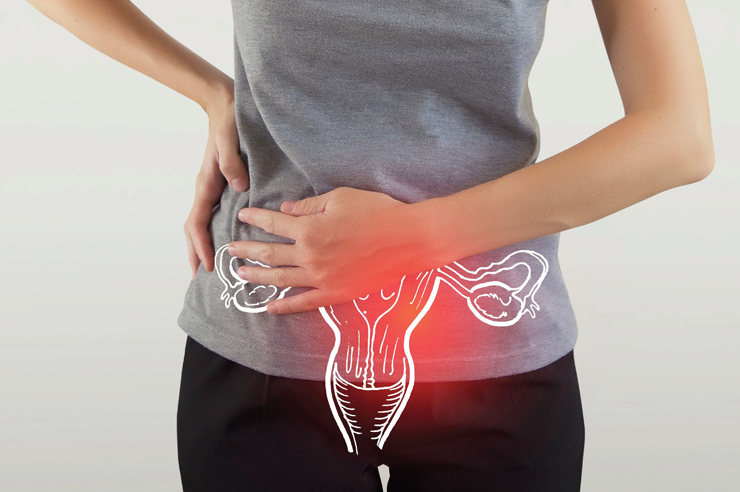PCOD / PCOS: Treatment
- Home
- PCOD / PCOS: Treatment


PCOD / PCOS: Treatment
Are you suffering from PCOD/PCOS? Well, let’s find out what PCOD or PCOS is and how Mother Divine IVF & Fertility Clinics is the best PCOD/PCOS treatment Centre in Delhi.
PCOD / PCOS
Polycystic ovarian syndrome or PCOD / PCOS is a common hormonal disorder that affects the ovaries of women in a reproductive age group i.e., 18-45 years. According to our experts at Mother Divine IVF & Fertility Clinics
Difference between PCOD and PCOS
PCOD is a general disorder, and 10% of the world’s female population is affected by it.
In PCOD, ovaries produce multiple immature or partially mature eggs, which happen due to an unhealthy lifestyle, weight gain, stress/anxiety, or hormonal imbalance in the body.
During PCOD, fertility in women is not affected. A woman can still ovulate and conceive with little medical assistance.
PCOD doesn’t have any severe complications.
About 0.2% to 2.5% of women worldwide suffer from PCOS, a complex medical disorder.
Compared to PCOD, PCOS is a more severe metabolic condition that can result in anovulation—the cessation of egg release from the ovaries.
A woman’s fertility may be severely impacted by PCOS. It is difficult to get pregnant when a woman does not ovulate frequently. There are always risks associated with pregnancy, such as the possibility of miscarriage or an early birth, among others.
Serious side effects from PCOS include heart disease, hypertension, type 2 diabetes, and an increased risk of endometrial cancer in later life.
Common Symptoms of PCOS / PCOD
- Major Infertility
- Non-consistent times
- Intervals of Absence or No Severe or Excruciating Times
- Darkening of the skin or dark patches (around the neck, near the groin, or beneath the breasts)
- Unwanted or excessive body and facial hair, mainly in areas where men are more likely to grow hair.
- Severe acne; obesity (mostly from weight gain associated with PCOS)
- Thinning hair
- fatigue
Why do you have to face these symptoms in PCOD/PCOS?
A woman’s body may create more testosterone, a male hormone that is produced in very minute amounts in females and further complicates ovulation if her insulin levels rise.
Women with PCOD/PCOS have higher levels of androgens than normal. Acne, excessive hair growth, irregular menstrual periods, ovulatory dysfunction, and obesity are caused by this high testosterone level.
What are the complications of PCOS?
- Type 2 Diabetes
- Gestational Diabetes
- Miscarriage or premature birth
- Anxiety, depression, or low self-esteem (mostly due to hair and weight issues)
- Eating disorders
- Sleep Apnea
- Metabolic syndrome: high blood sugar and risk of cardiovascular diseases
- Endometrial cancer
- Ovarian cancer
- Breast cancer
When to Visit a PCOD/PCOS Doctor?
You should speak with your healthcare professional as soon as possible if you are experiencing irregular periods, infertility, severe acne, excessive hair loss, excessive hair growth, or obesity in order to prevent further issues.
Reproduction is complicated, and one should not risk it at any cost if one wants to have kids in the future and for your own health’s sake.
Lifestyle and Nutritional Changes for Weight Management
Therapy for Anomalous Menstrual Cycle
Look for any abnormalities in the reproductive organs by performing a pelvic exam.
hormone level monitoring via blood tests, etc.
Ultrasound for ovarian cysts, uterine lining, and ovarian size checks
Treatment for Sleep Apnea and Stress Management.
little surgery, if necessary, routine examinations, and follow-ups to maintain PCOD/PCOS and other related issues
PCOD/PCOS is a hormonal imbalance where ovaries produce multiple immature eggs. This causes irregular periods, weight gain, acne, excessive hair growth, and sometimes infertility.
Yes. Many women conceive naturally with lifestyle changes and medication. For others, fertility treatments like ovulation induction, IUI, or IVF may be required.
We provide diet and lifestyle counseling, hormonal medications, ovulation induction, IUI, IVF, and advanced fertility support — all personalized for PCOD/PCOS patients.
It cannot be permanently cured, but symptoms and fertility issues can be managed effectively with long-term medical care, lifestyle modifications, and regular monitoring.
It often disrupts ovulation, making it harder to release mature eggs. With expert treatment and advanced fertility techniques, most women with PCOD/PCOS can achieve pregnancy.
A balanced diet, regular exercise, weight management, stress reduction, and avoiding smoking/alcohol significantly improve symptoms and treatment success.


